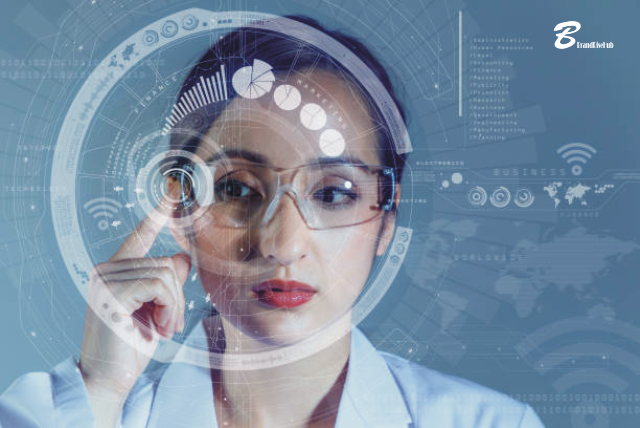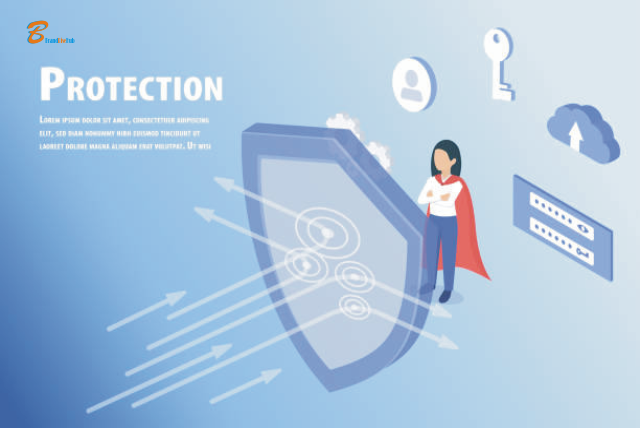Smart Glasses For Healthcare | Enhancing Patient Care 2025
Smart glasses for healthcare professionals are changing the way doctors, nurses, and other medical staff interact with patients. They also improve how medical staff manage information. These innovative devices merge advanced technology with practicality. They offer hands-free access to vital patient data and real-time communication with colleagues. They even provide augmented reality assistance during surgical procedures. In the fast-paced world of healthcare, these smart glasses provide a seamless and efficient way for professionals. They enhance capabilities and deliver better patient care.
Contents
- 1 Understanding the Role of Smart Glasses in Healthcare
- 2 Advantages of Smart Glasses in Healthcare
- 3 Applications of Smart Glasses in Medical Settings
- 4 Future Developments and Integration of Smart Glasses in Healthcare
- 5 FAQs
- 5.0.0.1 Q1. What are smart glasses for healthcare professionals?
- 5.0.0.2 Q2. How do smart glasses benefit healthcare professionals?
- 5.0.0.3 Q3. What features should I look for in smart glasses for healthcare use?
- 5.0.0.4 Q4. Are smart glasses HIPAA compliant for healthcare use?
- 5.0.0.5 Q5. How can smart glasses enhance telemedicine in healthcare?
- 5.0.0.6 Q6. Are smart glasses suitable for use in surgical procedures?
- 5.0.0.7 Q7. What are some examples of smart glasses being used in healthcare settings?
- 5.0.0.8 Q8. How durable are smart glasses for healthcare professionals?
- 5.0.0.9 Q9. Can smart glasses integrate with existing healthcare systems?
- 5.0.0.10 Q10. What are the future prospects of smart glasses in healthcare?
- 5.1 Summing Up
- 5.2 Share this:
- 5.3 Like this:
Understanding the Role of Smart Glasses in Healthcare

Smart glasses in healthcare are revolutionizing how professionals work. They offer hands-free access to vital information, enhancing efficiency and patient care. Let’s delve into their role and impact in modern healthcare practices.
Advantages of Using Smart Glasses in Medical Settings

Smart glasses in medical settings offer numerous advantages. They enhance hands-free communication between healthcare professionals, streamlining patient care. With built-in features like augmented reality displays, they provide instant access to vital information, improving efficiency and decision-making in real-time.
Features to Look for in Smart Glasses Designed for Healthcare Use
When choosing smart glasses for healthcare, prioritize lightweight frames for comfort during long shifts. Look for models with high-resolution cameras and augmented reality capabilities to enhance visualization of patient data and medical imaging. Additionally, consider options with voice command features for hands-free operation in busy clinical settings.
Advantages of Smart Glasses in Healthcare
Smart glasses revolutionize healthcare by enhancing communication between medical professionals and patients. They provide real-time access to crucial patient data and medical records, improving efficiency and accuracy in diagnosis and treatment. Additionally, smart glasses enable hands-free operation, empowering healthcare professionals to focus fully on patient care without interruptions.
Hands-Free Access to Patient Data
Accessing patient data hands-free is revolutionizing healthcare with the advent of smart glasses for healthcare professionals. These innovative devices allow doctors and nurses to retrieve crucial information effortlessly, enhancing efficiency and patient care. With smart glasses for healthcare professionals, accessing patient data becomes seamless, enabling quicker decision-making and improving overall medical outcomes.
Real-Time Communication and Collaboration
Real-time communication and collaboration are essential in today’s fast-paced world, enabling instant exchange of information and ideas. Healthcare professionals coordinate patient care, and remote teams collaborate on projects. The need for seamless interaction is paramount. Smart glasses for healthcare professionals offer a promising solution. They enhance real-time communication and collaboration. These glasses provide hands-free access to vital data. They enable instant connectivity with colleagues.
Augmented Reality Assistance in Surgical Procedures
“Smart Glasses for Healthcare Professionals” are revolutionizing surgical procedures through augmented reality assistance. These cutting-edge glasses provide real-time guidance and information to surgeons, enhancing precision and efficiency in the operating room. Augmented reality technology allows healthcare professionals to access vital patient data. They can also visualize complex anatomy directly within their field of view.
Applications of Smart Glasses in Medical Settings
In medical settings, smart glasses are revolutionizing the way healthcare professionals operate. These glasses offer a hands-free solution for accessing crucial patient information and medical records. Smart glasses for healthcare professionals enhance efficiency and accuracy in tasks like patient monitoring and treatment administration.
Remote Consultations and Telemedicine

In the fast-evolving landscape of healthcare, remote consultations and telemedicine have emerged as vital tools. Smart glasses for healthcare professionals facilitate these virtual interactions, enabling seamless communication and patient care from anywhere. These innovative devices are revolutionizing healthcare delivery. They ensure accessibility and efficiency in the modern era.
Training and Education for Healthcare Professionals
In today’s fast-paced healthcare landscape, staying updated is crucial. Training and education for healthcare professionals, especially in emerging technologies like smart glasses, is paramount. These tools empower professionals to deliver efficient and precise care, enhancing patient outcomes.
Monitoring and Documentation of Patient Care
Keeping track of patient care is vital in healthcare settings. Smart glasses for healthcare professionals offer a promising solution for monitoring and documenting patient care in real-time. These innovative devices streamline the process, enhancing efficiency and accuracy in delivering medical services.
Future Developments and Integration of Smart Glasses in Healthcare
The integration of smart glasses in healthcare marks a significant leap forward in medical technology. Future developments in this field promise even greater advancements. Potential applications range from augmented reality-assisted surgeries to seamless patient monitoring. As these technologies continue to evolve, their integration into everyday healthcare practices holds immense potential. This progress aims to revolutionize patient care delivery and improve outcomes.
In the rapidly evolving landscape of healthcare, smart glasses for healthcare professionals are poised to revolutionize patient care. These cutting-edge devices offer real-time access to critical information and streamline workflows, enhancing efficiency and accuracy. Future developments in smart glasses integration hold the promise of even greater advancements in medical practice.
FAQs
Q1. What are smart glasses for healthcare professionals?
Smart glasses for healthcare professionals are wearable devices with various features. These features include augmented reality (AR) displays, cameras, and sensors. They assist medical personnel in tasks like telemedicine, remote consultations, and accessing patient data hands-free.
Q2. How do smart glasses benefit healthcare professionals?
Smart glasses enable healthcare professionals to access real-time patient data. They let them collaborate with colleagues remotely. Professionals can perform hands-free tasks during procedures. They also receive augmented guidance or instructions. These features ultimately improve efficiency and patient care.
Q3. What features should I look for in smart glasses for healthcare use?
Important features include a comfortable and lightweight design for extended wear. The AR display provides visual information overlay. The built-in camera is useful for documentation or telemedicine. Voice control allows hands-free operation. Additionally, integration with existing healthcare systems ensures seamless data access.
Q4. Are smart glasses HIPAA compliant for healthcare use?
Many smart glasses designed for healthcare professionals adhere to HIPAA (Health Insurance Portability and Accountability Act) regulations. They implement encryption and secure data transmission. User authentication features protect patient privacy and ensure compliance.
Q5. How can smart glasses enhance telemedicine in healthcare?
Smart glasses enable healthcare professionals to conduct remote consultations. They diagnose conditions and provide medical guidance to patients in real-time. This occurs regardless of geographical distance. Consequently, they improve access to healthcare services and reduce the need for in-person visits.
Q6. Are smart glasses suitable for use in surgical procedures?
Yes, smart glasses equipped with AR displays can provide surgeons with vital information. This includes patient anatomy and procedural guidance. These are overlaid directly onto their field of view. This technology enhances precision, reduces errors, and improves surgical outcomes.
Q7. What are some examples of smart glasses being used in healthcare settings?
Examples include using smart glasses for remote consultations. They are used in medical training simulations. Accessing electronic health records (EHRs) hands-free is another example. Smart glasses guide surgical procedures and provide real-time medical assistance during emergencies.
Q8. How durable are smart glasses for healthcare professionals?
Smart glasses designed for healthcare use are typically durable. They resist dust, water, and impacts. This durability ensures they can withstand the rigors of clinical environments. They maintain functionality and reliability.
Q9. Can smart glasses integrate with existing healthcare systems?
Yes, many smart glasses are designed to integrate seamlessly with electronic health record (EHR) systems and hospital networks. They also integrate with other healthcare IT infrastructure. This design allows for secure access to patient data and interoperability with existing workflows.
Q10. What are the future prospects of smart glasses in healthcare?
The future of smart glasses in healthcare is promising. Ongoing advancements in technology are leading to improved functionality. They are enhancing user experience. There are also expanded applications such as AI-powered diagnostics, remote monitoring, and personalized patient care.
Summing Up
Smart glasses for healthcare professionals represent a transformative tool in patient care, offering real-time access to information and streamlining workflows. Future developments promise even greater integration and advancements in medical practice, reshaping the way healthcare is delivered.







2 Comments